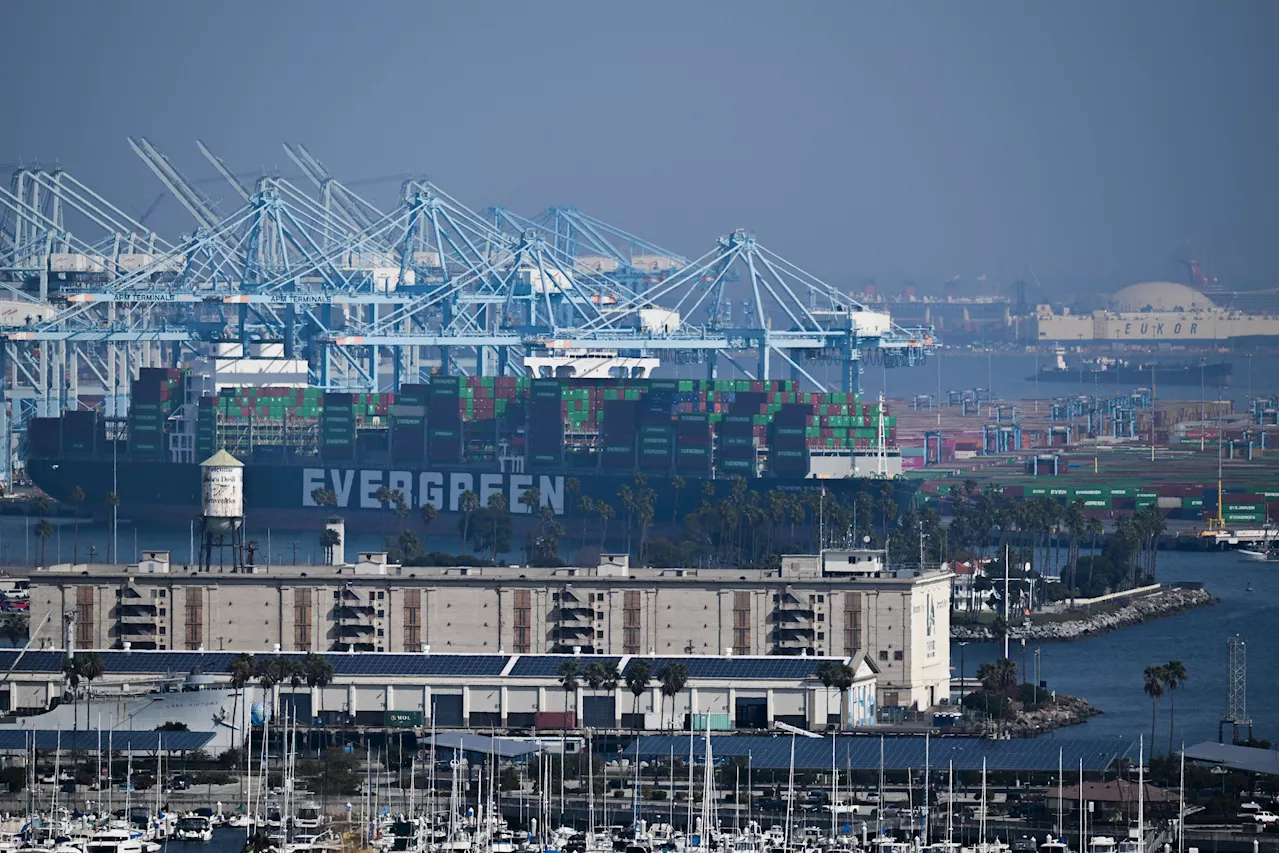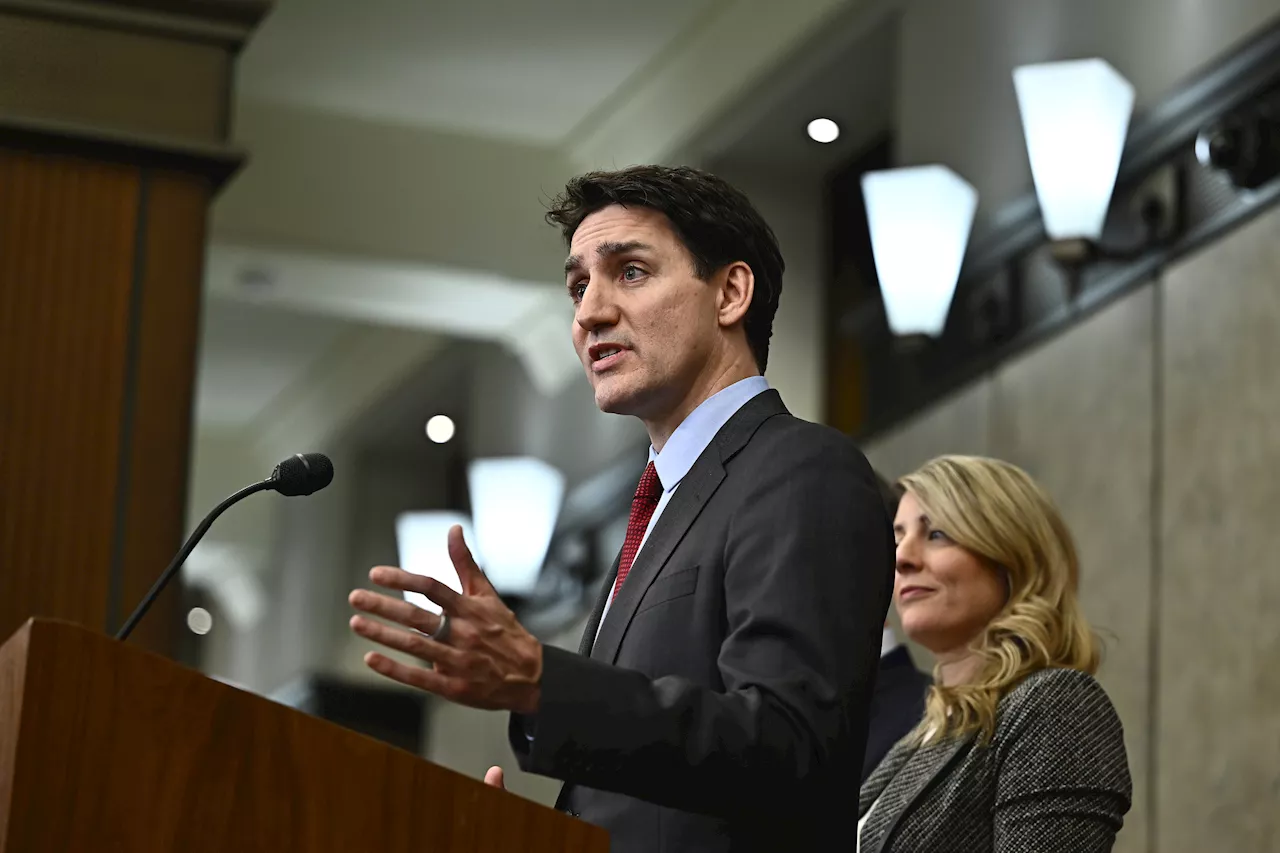China responds to U.S. tariffs on goods from Mexico and Canada with its own tariffs on American products. Tensions rise as global trade concerns escalate.
Beijing retaliated against the U.S. by imposing tariffs of 10% to 15% on a range of American products, including coal, liquefied natural gas, crude oil, pickup trucks, and agricultural machinery. The tariffs took effect shortly after the U.S. tariffs on goods from Mexico and Canada came into force. China stated that these U.S. tariffs violate World Trade Organization rules and harm normal economic and trade cooperation between the two nations.
The Chinese government announced a 15% tariff on coal and liquefied natural gas, and a 10% tariff on crude oil, agricultural machinery, large-displacement automobiles, and pickup trucks, starting February 10th. This move came just minutes after the U.S. tariffs, the only ones to be implemented despite a threat of similar tariffs on goods from China, took effect. While the U.S. reached an agreement with Mexico and Canada to delay a 25% tariff on all imports from those countries for one month, no such deal was reached with China. The Chinese government also announced an investigation into Google for alleged anti-trust violations and export controls on items related to tungsten and other rare earth elements. This escalation of trade tensions raises concerns about a potential trade war between the world's two largest economies. China emphasized that the U.S. actions severely undermine the rules-based multilateral trading system and disrupt global industrial and supply chains. Despite the U.S. blocking the appointments of appellate judges to the World Trade Organization, leaving it unable to effectively mediate international trade disputes, China could still leverage a WTO lawsuit to gather international support against the U.S. tariffs
CHINA TARIFFS UNITED STATES TRADE WAR WTO
United States Latest News, United States Headlines
Similar News:You can also read news stories similar to this one that we have collected from other news sources.
 Canada Retaliates Against Trump Tariffs with $155 Billion in Tariffs on US GoodsCanadian Prime Minister Justin Trudeau announced retaliatory tariffs on $155 billion worth of American goods in response to President Donald Trump's imposition of tariffs on goods from Canada, Mexico, and China.
Canada Retaliates Against Trump Tariffs with $155 Billion in Tariffs on US GoodsCanadian Prime Minister Justin Trudeau announced retaliatory tariffs on $155 billion worth of American goods in response to President Donald Trump's imposition of tariffs on goods from Canada, Mexico, and China.
Read more »
 China Retaliates Against US Tariffs with Trade Measures and Antitrust ProbeChina announced retaliatory tariffs on US imports and launched an antitrust investigation into Google, escalating tensions in the ongoing trade war between the two nations.
China Retaliates Against US Tariffs with Trade Measures and Antitrust ProbeChina announced retaliatory tariffs on US imports and launched an antitrust investigation into Google, escalating tensions in the ongoing trade war between the two nations.
Read more »
 China Retaliates with Tariffs Against US, Escalating Trade War FearsChina imposed tariffs on US goods, escalating trade tensions between the two countries. The move came after the US implemented tariffs on its own, raising concerns about a global trade war.
China Retaliates with Tariffs Against US, Escalating Trade War FearsChina imposed tariffs on US goods, escalating trade tensions between the two countries. The move came after the US implemented tariffs on its own, raising concerns about a global trade war.
Read more »
 Canada Retaliates with Tariffs Against U.S. GoodsIn response to U.S. trade restrictions imposed by Donald Trump, Canada has implemented retaliatory tariffs on a wide range of American products, impacting billions of dollars worth of goods across various sectors. The Canadian government aims to pressure the U.S. to lift its trade barriers while safeguarding Canadian industries.
Canada Retaliates with Tariffs Against U.S. GoodsIn response to U.S. trade restrictions imposed by Donald Trump, Canada has implemented retaliatory tariffs on a wide range of American products, impacting billions of dollars worth of goods across various sectors. The Canadian government aims to pressure the U.S. to lift its trade barriers while safeguarding Canadian industries.
Read more »
 Canada Retaliates Against U.S. Tariffs With 25% Levy on GoodsIn response to President Trump's imposition of 25% tariffs on goods from Mexico and Canada, Canada has enacted its own 25% tariffs on a range of American imports. The dispute centers around claims of insufficient action against drug trafficking, a claim vehemently refuted by Canada. The tariffs are expected to impact both consumers and businesses, particularly those in the automotive sector.
Canada Retaliates Against U.S. Tariffs With 25% Levy on GoodsIn response to President Trump's imposition of 25% tariffs on goods from Mexico and Canada, Canada has enacted its own 25% tariffs on a range of American imports. The dispute centers around claims of insufficient action against drug trafficking, a claim vehemently refuted by Canada. The tariffs are expected to impact both consumers and businesses, particularly those in the automotive sector.
Read more »
 Canada Retaliates Against US Tariffs by Banning American AlcoholIn response to President Trump's tariffs on Canadian goods, Canada is taking a stand by removing American alcohol from its shelves. The Ontario Liquor Control Board, the major importer of American alcohol in Ontario, will stop all sales indefinitely, impacting billions of dollars in annual trade.
Canada Retaliates Against US Tariffs by Banning American AlcoholIn response to President Trump's tariffs on Canadian goods, Canada is taking a stand by removing American alcohol from its shelves. The Ontario Liquor Control Board, the major importer of American alcohol in Ontario, will stop all sales indefinitely, impacting billions of dollars in annual trade.
Read more »
